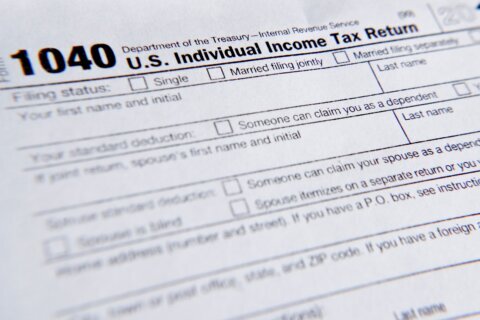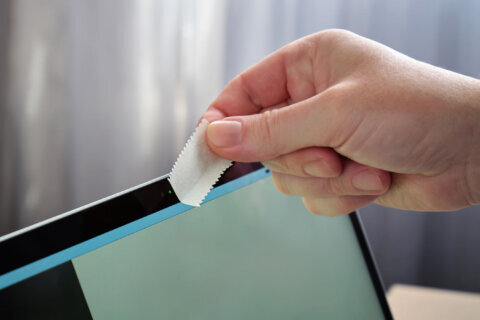Apple plans to give customers the ability to repair their own devices amid growing pressure from regulators and consumers around the world for manufacturers to ease restrictions on fixing products.
The company on Wednesday announced a new program that will make spare parts for Apple products available to purchase starting early next year. The program, known as Self Service Repair, will let users fix broken devices using repair manuals that Apple will post on its website.
Apple plans to start with some components that tend to require replacement such as displays, batteries and camera modules. The company says it will have more than 200 parts and tools available at launch and plans for more to be added later next year. The repair program will initially be available only for iPhone 12 and iPhone 13 users, but will later expand to Mac computers that use Apple’s new in-house M1 chip.
The company will only reveal the prices of its spare parts when the program formally launches next year, but Apple said it will charge individual users the same prices it currently charges independent repair providers.
Apple’s move comes as electronics manufacturers — as well as the makers of everything from tractors to hospital equipment — face increasing pressure to ease restrictions on independent device repair shops or DIY repairs, a push known as the “right to repair” movement. Companies have been criticized for using tactics that make it harder for independent repair businesses to access devices, such as using non-removable memory or batteries, or sealing devices with special glue. Critics argue these tactics can lead to more costs for consumers, hurt independent repair shops and be bad for the environment.
President Joe Biden passed an executive order in July that directed the Federal Trade Commission to issue rules requiring companies to allow DIY repairs. Days later, the FTC unanimously voted to condemn existing repair restrictions by manufacturers, with the agency’s chair, Lina Khan, vowing to “root out” illegal repair restrictions that may flout US antitrust and consumer protection laws.
Regulators in the United Kingdom and Europe have also either already passed or are considering legislation to force device manufacturers to provide their customers with spare parts.
It’s not just regulators. One of the noteworthy advocates for the “right to repair” movement has been Apple co-founder Steve Wozniak, who said earlier this year that he was “totally supportive” of the cause. “We wouldn’t have had an Apple had I not grown up in a very open technology world,” he said in a video on the celebrity shout-out website Cameo.
iFixit, a popular online repair website for consumer electronics that has criticized Apple and other companies for not allowing self repairs, welcomed Wednesday’s announcement.
“We’re thrilled to see Apple admit what we’ve always known: Everyone’s enough of a Genius to fix an iPhone,” iFixit said on Twitter.
Companies like Apple have previously argued their repair policies were in place to ensure the products are properly repaired. “We believe the safest and most reliable repair is one handled by a trained technician using genuine parts that have been properly engineered and rigorously tested,” Apple COO Jeff Williams said in a 2019 release announcing Apple’s independent repair shop partner program.
On Wednesday, Williams touted Apple’s announcement as giving “customers even more choice if a repair is needed.” He also said the company “has nearly doubled the number of service locations with access to Apple genuine parts, tools, and training, and now we’re providing an option for those who wish to complete their own repairs.”
Apple said there are more than 2,800 independent repair providers across 200 countries that have access to its parts and repair knowledge.
For now, the Self Service Repair program will only be available in the United States at launch, but Apple said it plans to expand the program to other countries over the course of 2022.
The-CNN-Wire
™ & © 2021 Cable News Network, Inc., a WarnerMedia Company. All rights reserved.







